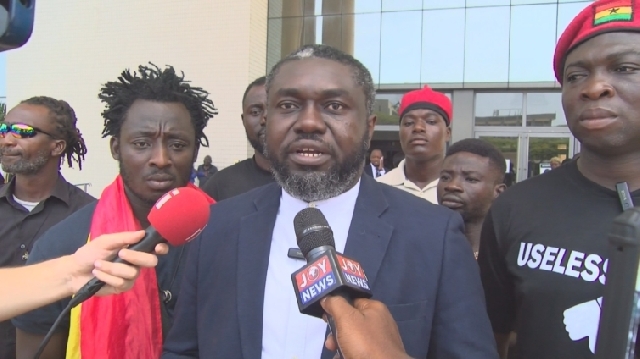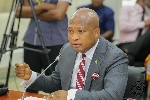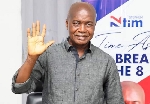Barker-Vormawor critiques Adu-Boahene’s “classified” defense strategy
 Oliver Barker-Vormawor
Oliver Barker-Vormawor
A private legal practitioner Osagyefo Oliver Barker-Vormawor, has launched a pointed critique of former intelligence chief Mr. Kawbena Adu-Boahene’s defense in his ongoing embezzlement case.
Barker-Vormawor argues that Adu-Boahene’s insistence on the classified nature of certain operations is undermined by the very public release of those details.
In a scathing commentary on Facebook, Barker-Vormawor notes that Adu-Boahene “refused to inform investigators” about allegedly covert operations during CID interrogations, citing their classified status.
Yet, he observes, those same details “have now been released through his lawyers into the public domain.” Barker-Vormawor questions the practical value of these disclosures for citizens without security clearance, and why Adu-Boahene never raised the issue with the National Security Coordinator or the Attorney-General’s office when on bail.
Describing the move as a “red herring,” the lawyer stops short of accusing Adu-Boahene of fabrication, but insists that “we must interrogate independently” the veracity of the operations.
He warns that the former head of an agency should not assume that public disclosure shields him from further scrutiny.
Central to Barker-Vormawor’s critique is the lack of any evidence directly linking the allegedly embezzled funds with the covert operations Adu-Boahene has outlined.
“There is absolutely no proof that the monies he is said to have embezzled and the monies used for these possibly true activities are the same,” he asserts.
He dismisses the lawyer’s claim of immunity under state-security provisions as “preposterous” and akin to “blackmail justice.”
Barker-Vormawor further cautions that unauthorised disclosures—even if intended to negate criminal liability—could expose Adu-Boahene to additional consequences.
He reminds readers that while national security operations are necessarily covert, they are not beyond audit: “Covert special-purpose vehicles require approval, and can be audited.
No one has the power to spend state funds without accountability.”
The lawyer concludes by urging government auditors with security clearances to examine the disbursements in question, reinforcing the principle that “national security is largely covert but not a black hole.” He emphasises the need for transparency and accountability, even—or especially—when dealing with clandestine state operations.
Source: Classfmonline.com/Cecil Mensah
Trending News

Ashanti NDC members protest return of former DVLA regional director
14:24
Ghana revokes diplomatic and service passports of former officials and non-state actors
13:12
MP for Awutu Senya West supports 53 tertiary students with scholarships
11:49
Defence Minister commends Erastus Asare Donkor for anti-galamsey reporting
01:03
DVLA to open six overseas offices to help curb fake Ghanaian licences abroad
11:54
Supreme Court dismisses injunction application against President Mahama in Chief Justice case
12:41
GA/R: Tragic fire claims life of 5-year-old girl at Adjei Kojo Sancity
11:36
National Chairman is attending to some urgent issues in Accra, he will join the tour after that - Justin Kodua
00:19
COCOBOD CEO urges return to core mandate of funding cocoa
11:28
Sam George throws shade at Afenyo-Markin over police assault claims
12:21



